Women Leaders Expedition 2025
GHE Dec 8, 2025
From Trails to Transformation
Future Leaders Expedition 2025
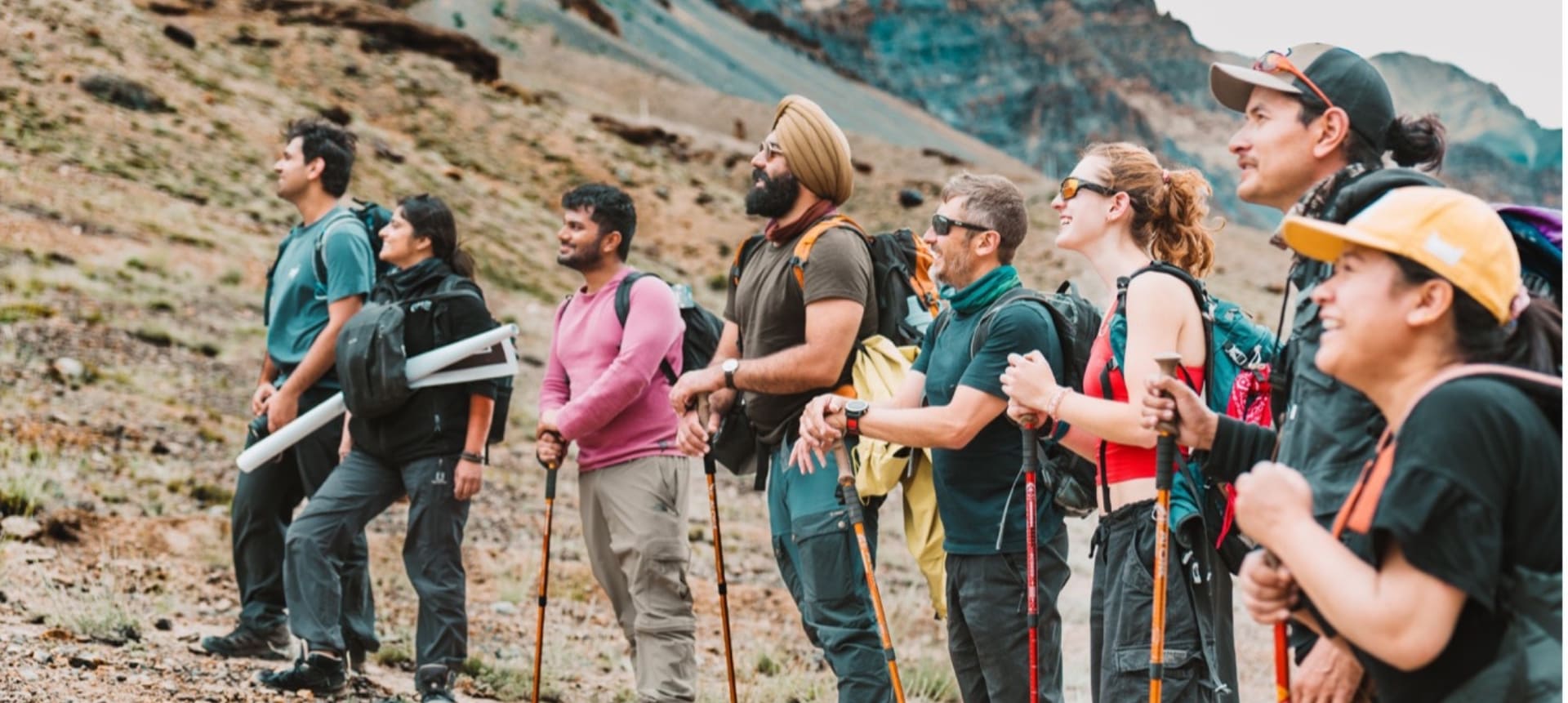
At over 11,000 feet above sea level where the mountains whisper ancient stories and every breath is a reminder of nature’s enormity, the GHE Future Leaders Expedition had changemakers from across the world who came together to do something extraordinary not just for themselves, but for a remote village tucked away in one of the remotest corners of the Indian Himalayas.
This is the story of a one of a kind journey designed and led by GHE where adventure, cultural immersion and sustainable impact converge to shape a new generation of global leaders.

A Team from across the Globe
From different corners of the world, five individuals came together, each drawn by a shared sense of purpose and the spirit of meaningful adventure. Everyone brought a deep understanding of sustainability and academic insight with a drive to turn purposeful travel into lasting change. All the participants arrived with their own unique story but they left with a shared mission and a collective impact that transcended where they came from.
Setting the Stage: Journey through Ladakh
The expedition began in Leh, Ladakh’s high-altitude capital city. Surrounded by snow-capped peaks and prayer flags fluttering in the wind the participants were first introduced to the rich cultural history and challenges of life in this cold desert region. With guidance from the GHE team, they learned about the unique energy needs of remote Himalayan villages and how decentralized sustainable solutions like solar energy and clean cooking technologies are transforming lives.
As part of the overall acclimatisation process, the team was not only given time to adjust to the high altitude and rugged terrain of Ladakh but was also immersed in the region’s rich cultural heritage. One such memorable experience was a traditional pottery workshop in Likir, a village renowned for its artistic legacy. Guided by local artisans, the team had the opportunity to get their hands dirty as they shaped clay into traditional forms using ancient techniques passed down through generations. This hands-on session served as both a grounding activity and a beautiful introduction to Ladakhi craftsmanship, offering a deeper understanding of the region’s identity and way of life beyond the mountains.

As the days unfolded, the team realised that all the context setting was a gateway to something deeper. The real journey began when the team set foot on the trail to Hanamur, a 800-year-old village nestled deep in the Zanskar Valley.
Trekking across the Trans Singela
What followed was two intense days of trekking across the Trans Singela pass, a rugged, high-altitude trail that demands mental strength as much as physical endurance. Camping under the milkyway and crossing dramatic landscapes, the team covered over 30 kilometers, passing glaciers and cliffside paths. But beyond the beauty and challenge of the trail the journey was about something else, building character and leadership through adversity.

It was here that the group began to bond, helping each other across tricky sections and encouraging one another through fatigue while learning to listen to silence. It wasn’t just a trek, it was a shared transformation.

Arrival at Hanamur
A Village frozen in time
With just five households and 37 residents, Hanamur is one of the remote villages in the Zanskar Valley. Isolated by geography and cut off for much of the year due to snow, the village has long struggled with basic infrastructure, including access to clean energy.
But what it lacks in resources, Hanamur makes up for in spirit. The villagers welcomed the team with warmth, offering their homes, meals and stories with open hearts. The expedition members weren’t just visitors they were partners in change.

Rolling up sleeves
Improved Rocket Stoves & Solar Street Lights
The final leg of the expedition involved direct impact work. Side by side with GHE’s local engineers, the Future Leaders led two critical interventions.
Five Space heating systems were setup during the expedition
Improved Rocket Stoves in every household
Each household in Hanamur was equipped with an Improved Rocket Stove, a significant upgrade from traditional bukharis. These stoves are designed using clean-combustion technology that not only improves thermal efficiency but also addresses critical health and environmental challenges faced by remote communities. Moreover, they are highly fuel-efficient, consuming far less wood than conventional bhukaris. The reduction in fuel use lessens the burden on women who often collect firewood, freeing up time for other productive activities. Each rocketstove has the potential to eliminate over 9 tons of carbon emissions per year, making it a powerful tool in the fight against climate change.

Solar Street Lights
The installation of solar street lights means that villagers have to no navigate in darkness after sunset, a challenge that often restricted movement. Further the street lights will also keep the predators at bay, enabling the villagers to protect their domestic animals like sheep and goats. Beyond practicality, the lights foster social cohesion, enabling children to play outside a little longer.
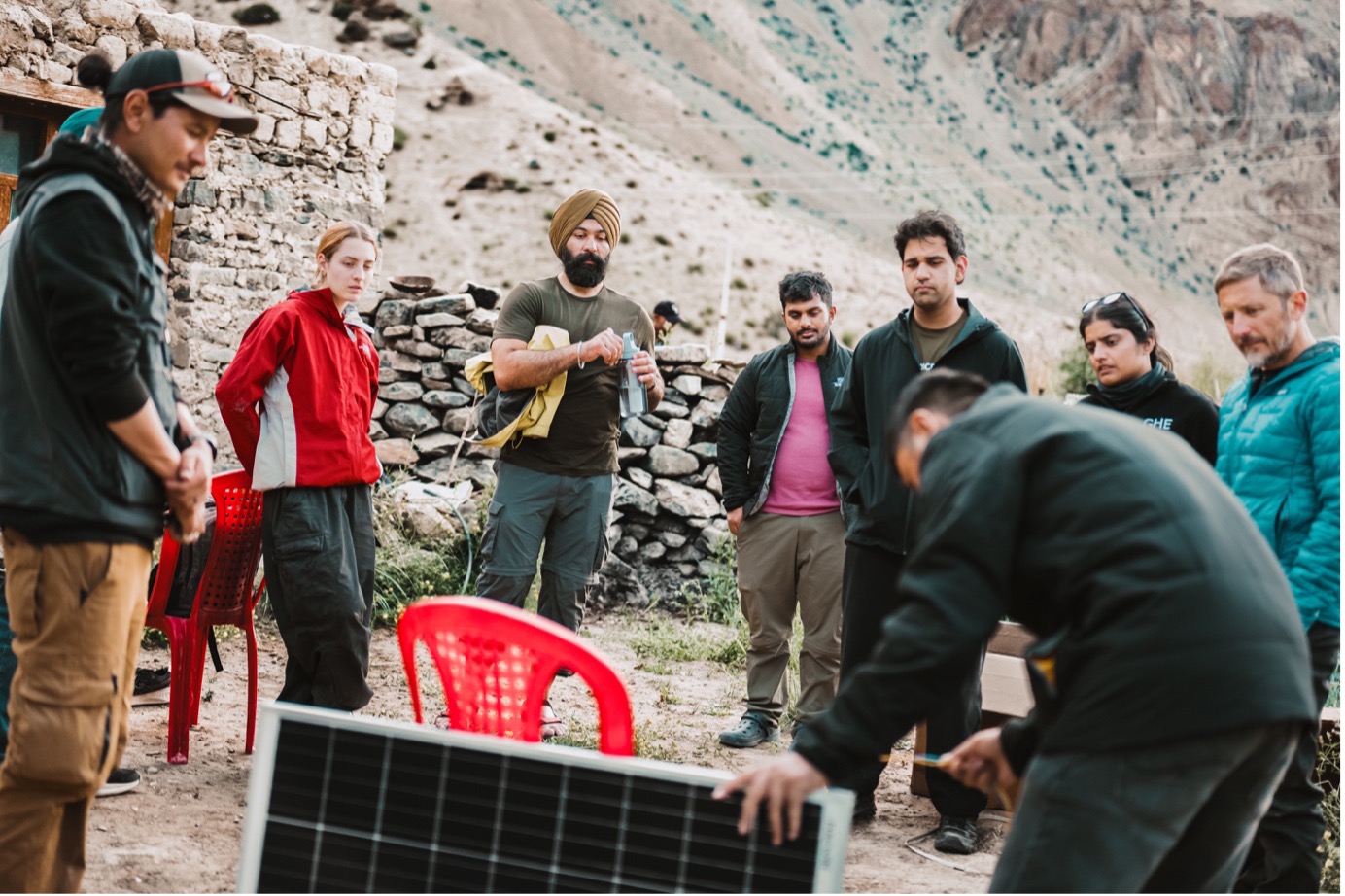
It was hands-on, dusty and technical and the team embraced every moment of it. These were not just symbolic gestures, they were tangible steps toward energy equity.
Reflections Over Butter Tea
Evenings were spent gathered in the community hall, sipping butter tea and learning about the villagers’ culture, food habits and hopes for their children. It was a humbling realization: real leadership begins with listening, understanding and walking with others
LED streetlights were installed to deter wild bears from damaging property
The Lasting Impact
By the end of the week, the team had achieved what many leadership programs only attempt in theory:
- Learned by doing – Solving real-world problems in real time
- Built empathy – Not from lectures, but from shared meals and stories
- Facilitated impact – Leaving behind meaningful, measurable improvements
- Formed bonds – Not just with each other, but with a remote village forever changed by their presence

Relevance for Regenerative Tourism
Expeditions like the Future Leaders Expedition are redefining what tourism means in today’s world. They represent a powerful shift from traditional sightseeing and leisure travel to meaning driven purpose-filled experiences. In a global landscape where travelers increasingly seek connection, authenticity and impact, such journeys offer a way to not just visit places, but to become part of a transformative story. These expeditions blur the lines between tourism and development where participants are not merely tourists, but active contributors to positive change.
For the tourism industry, this marks a transition toward regenerative travel where the goal isn’t just to minimize harm, but to actively leave a place better than it was found. By installing clean energy solutions and engaging with rural communities to co-creating infrastructure that improves lives, these expeditions revitalize local economies and uplift remote regions without compromising cultural or environmental integrity.

In a post-pandemic era, travelers are more conscious of the footprints they leave behind. Safety, meaningful engagement and small-group experiences are increasingly valued over mass tourism. Expeditions like these are perfectly aligned with this new wave of responsible travel as they are intimate, impactful and grounded in ethics.
The Future Leaders Expedition is more than just an adventure. It is a blueprint for how we can reimagine leadership development: not in boardrooms, but in the valleys and villages where change is needed most.
“This wasn’t just about installing stoves or lighting a village. It was about lighting something within ourselves — a sense of responsibility, resilience and respect for the power of community.”
– Urjit Bhatia, Expedition Participant

Latest Blogs
Explore perspectives on the work we do and ways to make an even greater impact together.

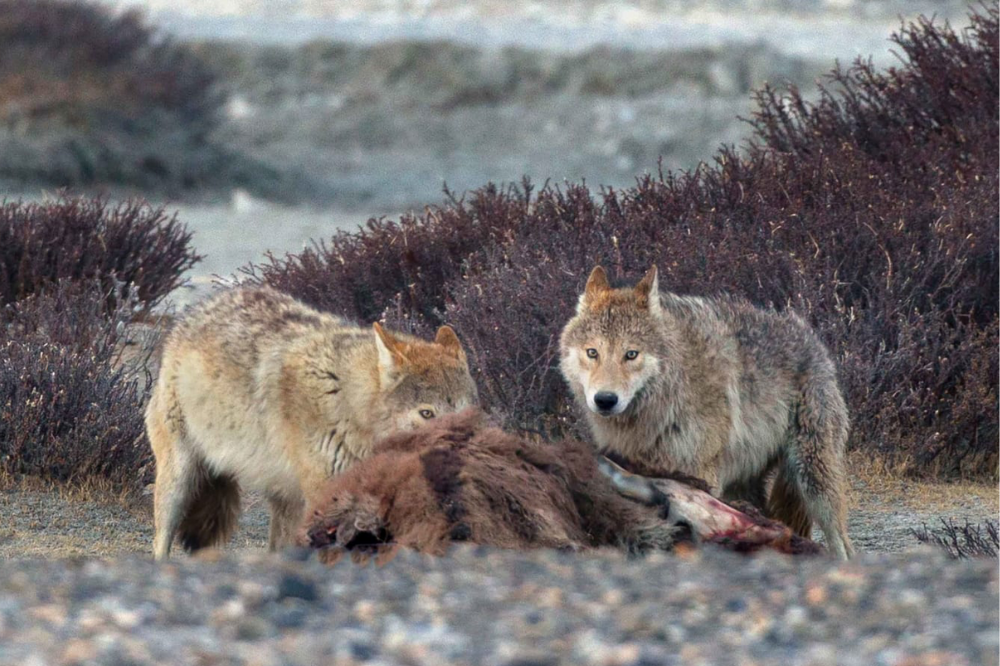

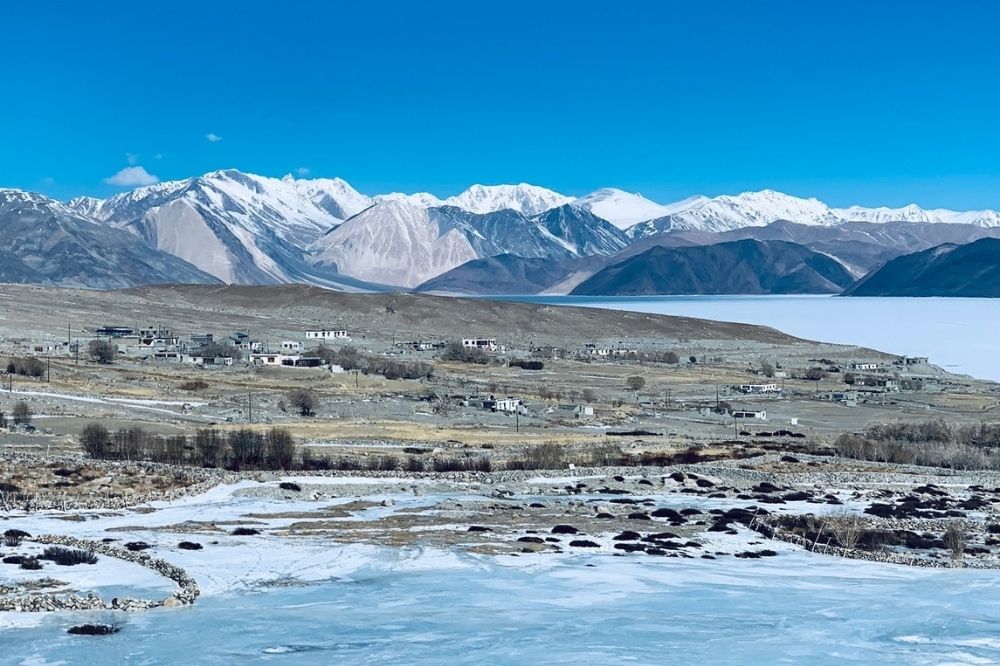

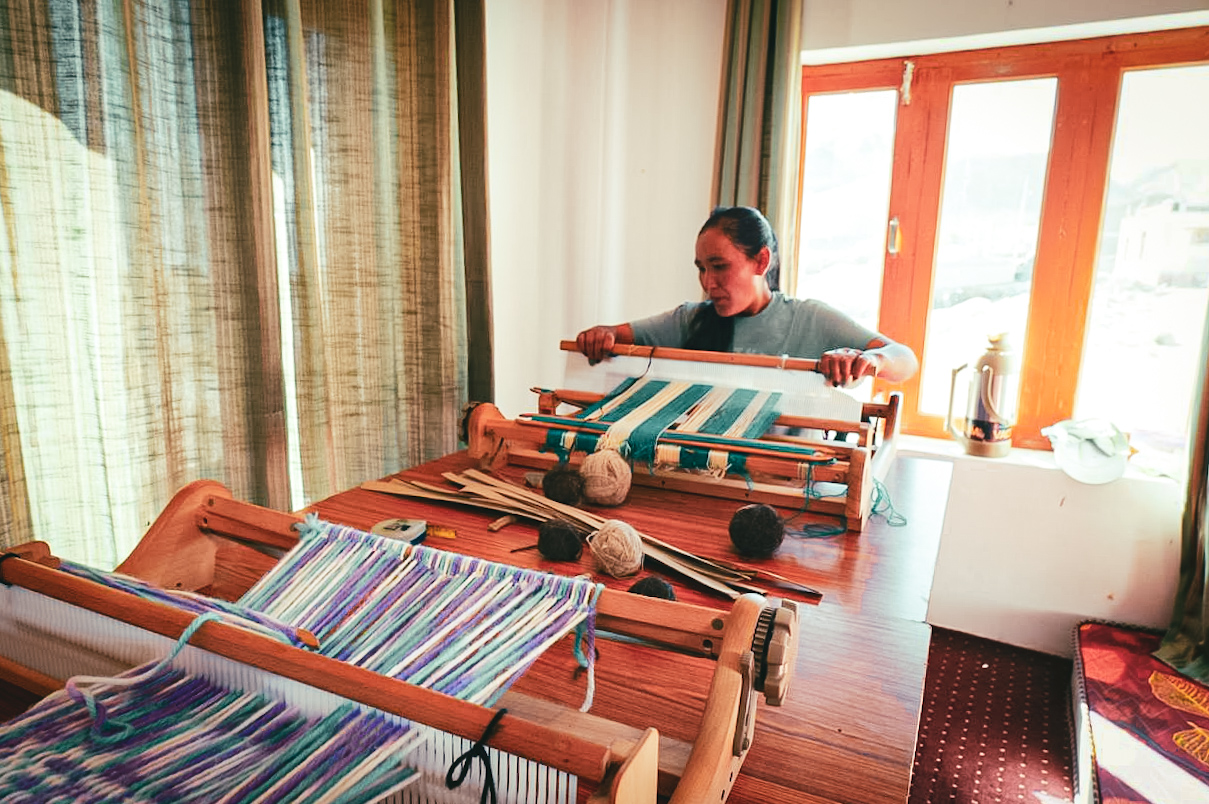
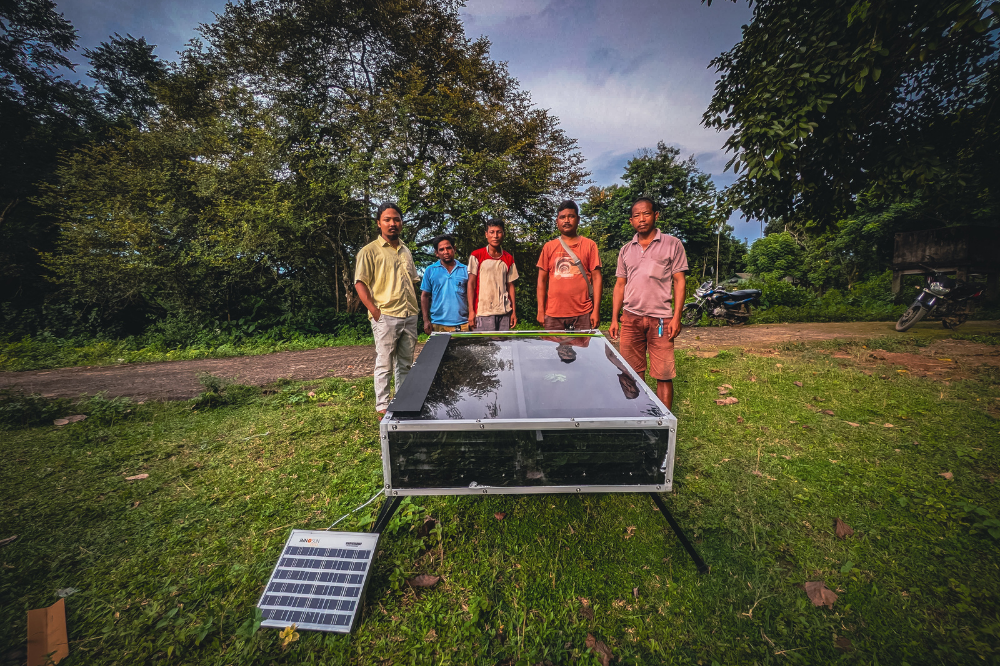


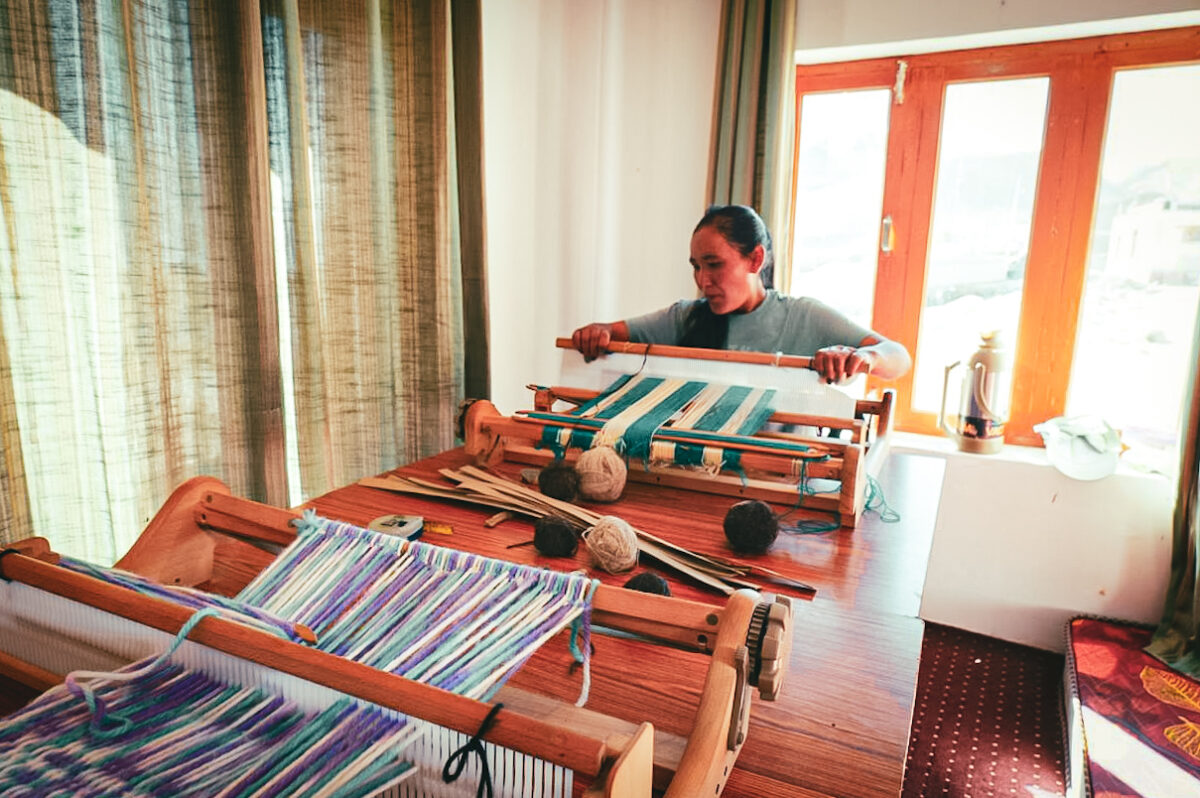



0 Comments